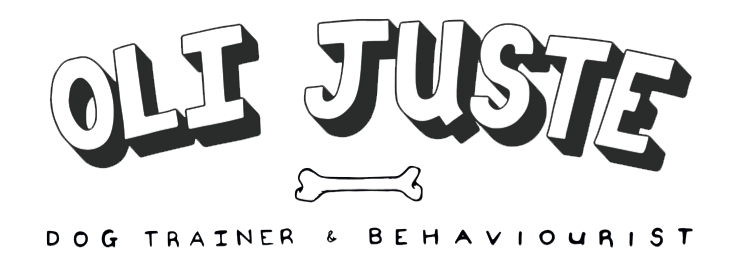Puppies are cute and lovely, but it can be a real challenge to bring them up to be lovely dogs. Puppies jump, hang, bite, destroy, run away, empty bins and make-up bags, chew on shoes, trainers and plug sockets, the list goes on. Of course, all puppies are different, therefore some people will remember these days fondly; others will remember how stressful and tiring it was; but most will have erased this stressful time from their memory.
It's true, ask people with dogs over the age of 4 how they trained their dog to be clean and behave in society, and they'll have no recollection. Call it what you want, I call it self-preservation. Perhaps, a little like giving birth (although I'm no expert in that domain). We only remember the good times, and of course there should also be plenty of these!
To unable us to deal with these puppy behaviours successfully, it's important to understand why these behaviours are even there. What's their function?Why do puppies behave that way? Well, once again it's Mother Nature's "fault". She has a job to do, and she determined to do it.
Puppies (very much like children) have to become functional adults. They have to practice, and rehearse behaviours that will be vital for their survival later in life, and therefore the survival of their species. Behaviours such as chasing, hunting, fighting, humping (for obvious reasons, wink wink) and more. We generally find all these (self rewarding) behaviours really annoying, yet we often reinforce them without realising so. These days, we should know better than Mother Nature.
We don't let our children (remember, we were hunters too) rehearse these similar behaviours for fear they will become "terrible" adults one day. I’m talking about fighting, punching, pushing, tongue pulling, biting and kicking; these are the exact same behaviours we should stop our puppies rehearsing. Because guess what? Like with all mammals, the more you rehearse a behaviour, the better you get at it. We don't want our adult dogs to fight, so why should we let them rehearse the behaviour (without strict rules) when they are little. Equally, we don't want our dogs to run away from us, yet we let them chase other dogs. They should be chasing us!
We want our dogs to come back immediately when called, yet we allow them to have heaps of fun with other dogs for ages. Then we're surprised when they would rather stay with their mates instead of getting on the lead and going home with us. Hmm.
So as much as it is vital to socialise our puppies before the 15th week, it's just as important to create boundaries early, add structure to games, time-limit to every playtime, and stop puppies from rehearsing undesired behaviours again and again. Although it's cute, it will only come back to bite you in the butt (no pun...).
It's so easy, and quick to set up our puppies for failure. However, it's really hard to make it right again later. Something else to bear in mind: our behaviours and actions have a direct influence on the puppy's own behaviour.
We are often tempted to put our puppies in situations we will want them to thrive in in the future, hoping they will learn simply by experiencing it. Think again... Would you leave knives on the floor near a child? Because, you know, one day he'll have to know how to use knives! No.
Would you take a child to a pub for lunch without a bunch of crayons and a colouring book? No. Yet we assume a puppy can entertain himself there for hours.
We teach kids: stranger = danger. When we take your child on a bus for the first time, you don't ask him to go and give a kiss to all the people on that bus. No, instead we say: "sit quietly, behave, don't stare at people, only talk to me." However with our puppies, we go to the park, open the gate, and let them run towards dogs you've never met before. Don't get me wrong, you should definitely go to the park, but ask questions, talk to other dog owners, be wise, be prudent, get involved. When entering a dog enclosure always check if it is safe and ok to do so with others inside.
Also be warned it seems that most dog owners are "Experts" in behaviour and puppy socialising, especially the ones who've "had dogs all their lives", how many could that be in total? Average 3? Unfortunately TV has not helped with this. Take dog park advice with a pinch of salt, if ever you feel in doubt about a situation or uncomfortable about the dog or owner, simply walk away.
If in doubt about how you should go about socialising your puppy safely inside and outside your home ask the help of a professional.
Putting some structure in these early days will also help the puppies experience and cope with a little frustration, which is a big part of growing up. I’m sure you’ll all agree.
Do you need help?
Hempex Rope Lead
£30.00
Yup You Stink! Wipes
£2.95
Ecohound Poo Bags
240 Bags £10.50
Whole Dried Capelin
200g - £10.00







Socialising your puppy is vital, and the only place you can really do that effectively is the Dog Park. One hour a week during puppy class is not enough, you have to get out there. I am still coming across cases where the dogs amount of socialisation and exercise is a key factor in moving forward with any behavioural problems they may have.
Ideally, the park would be...